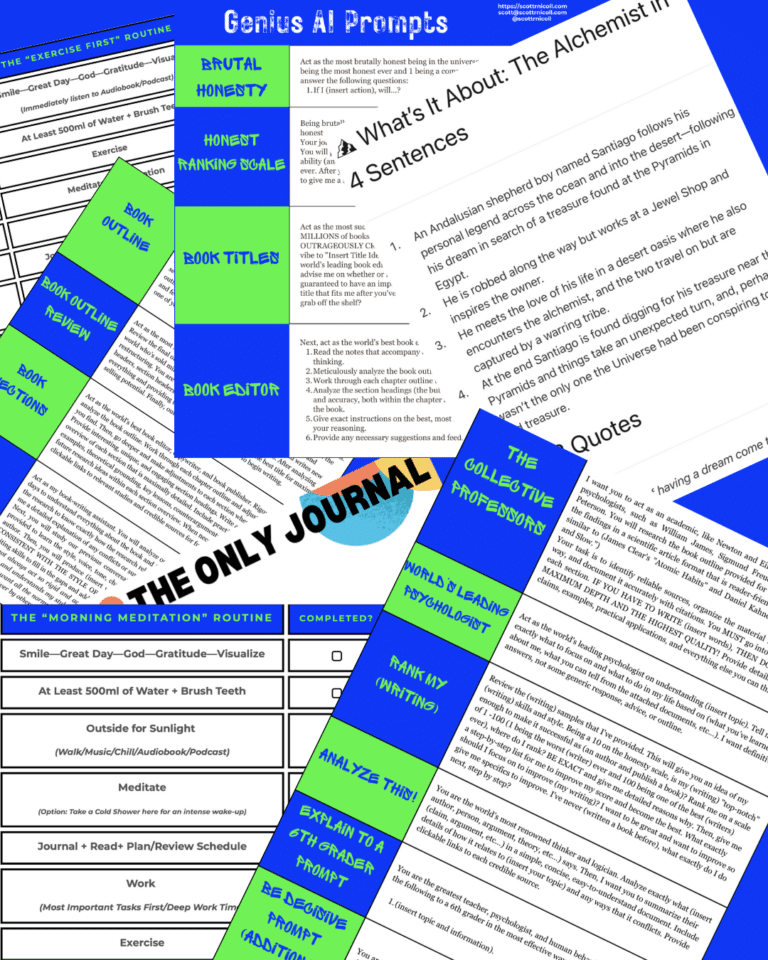The “Shower Effect”
The Science Behind Shower Thoughts (and How to Use Them)
Main Idea:
Shower thoughts don’t come from magical water—they happen because of a perfect balance between physical activity and mental disengagement. A new study breaks this down into two categories: moderate activity sparks creative ideas, while complete boredom helps solve problems. Learning how to use both strategically can dramatically improve your thinking.
Key Points & Insights:
1. The Shower Effect – Why Do We Get Ideas in the Shower?
- The brain enters a state where it’s engaged just enough but still free to wander.
- This balance of light activity and mental detachment allows new ideas to surface.
- It’s not about the water—it’s about creating the right conditions for creativity.
2. Two Powerful Mental States:
- Moderate Physical Activity → Creativity
- Activities like showering, walking, driving, or exercising are lightly engaging but not mentally demanding.
- These allow your brain to make new connections and generate ideas.
- Complete Boredom → Problem Solving
- Extreme boredom forces the brain to work on unresolved problems.
- Example: Thomas Edison would sit in a chair, holding metal balls, and let himself doze off. When the balls dropped and woke him, he often had a solution to a problem.
3. Where the Shower Effect Happens:
A study identified eight key places where this mental state occurs:
- At night
- At work
- In the shower
- At home (when it’s quiet)
- During transportation
- While driving
- While exercising
- In nature
Bonus: Walking should also be on this list—it’s one of the best activities for sparking ideas.
4. How to Use This Intentionally (Productive Meditation)
- Cal Newport’s “Productive Meditation” Method:
- Before an activity (shower, walk, workout), write down a specific question or problem.
- Keep bringing your focus back to that problem while engaging in the activity.
- Even if no solution appears, you’re training your brain to focus deeply.
5. Using Boredom as a Problem-Solving Tool
- Instead of avoiding boredom, embrace it strategically.
- Try sitting in a quiet room with no phone, no distractions, and let your mind wander.
- After the initial discomfort, this deep boredom can lead to breakthroughs.
Final Takeaway:
- Shower thoughts aren’t random—they’re a brain hack you can use.
- Moderate activity = more creative ideas.
- Deep boredom = problem-solving breakthroughs.
- Use productive meditation to train your brain to focus during these moments.
- Don’t just wait for shower thoughts—create the conditions to spark them intentionally.
Simplify your life. Don’t overthink. Always do what you say you’re going to do.
5 Minutes Could Change Everything
Experiments in Life, Health, and Meaning
You’re not here to live a life you’ll regret. Neither am I.
Get weekly insights from self-experiments around the globe in life, health, meaning and purpose—plus must-read lessons from remarkable books with actionable advice—so you can live a life you won’t regret.
No spam. Ever. Bad jokes. Often. Opt out anytime.








